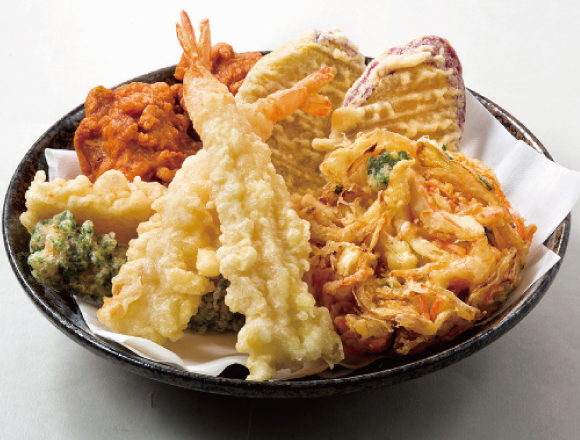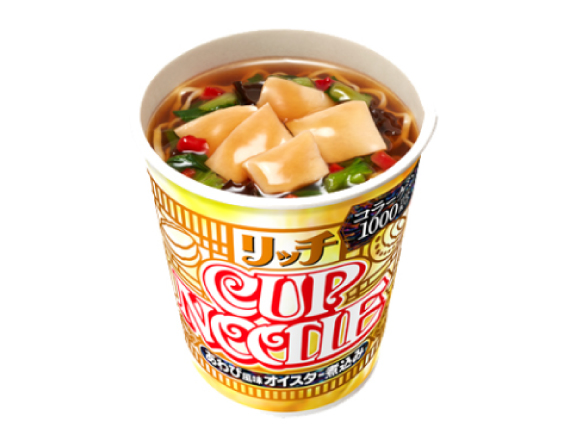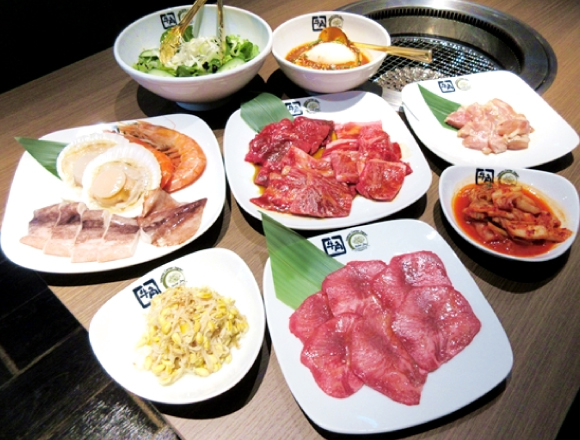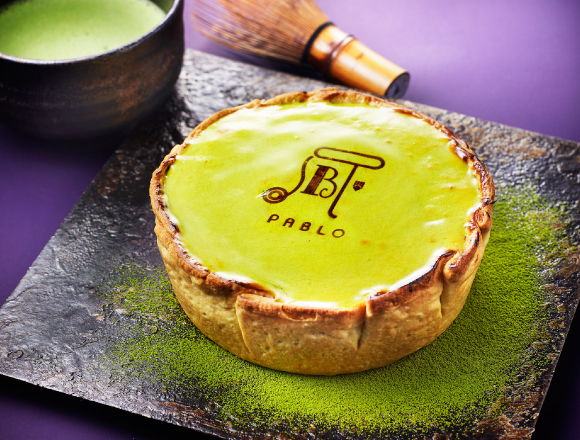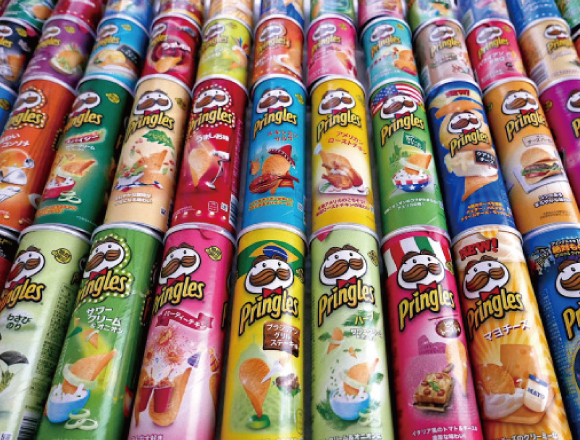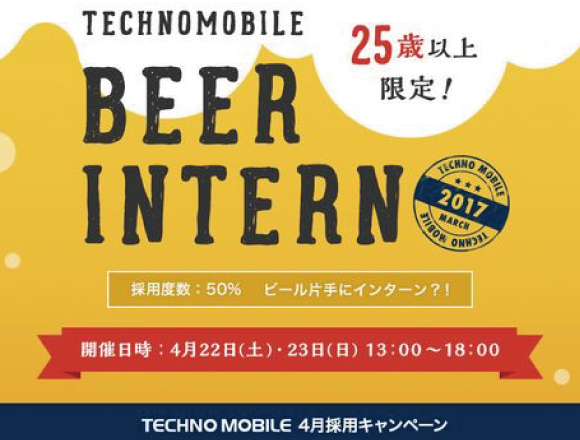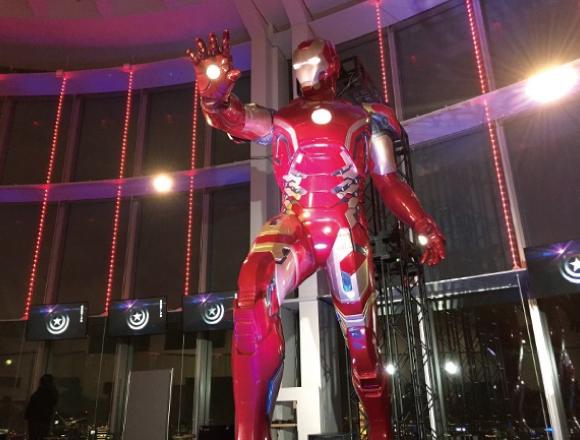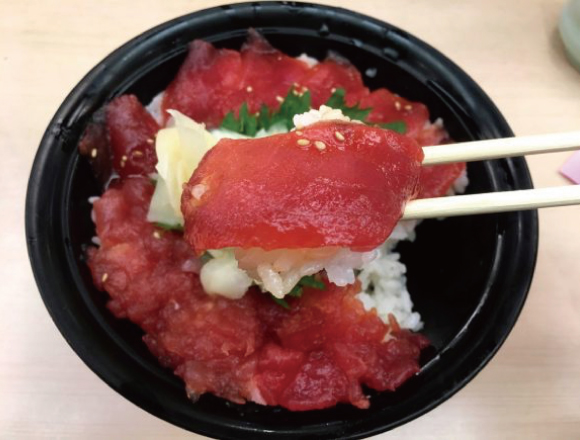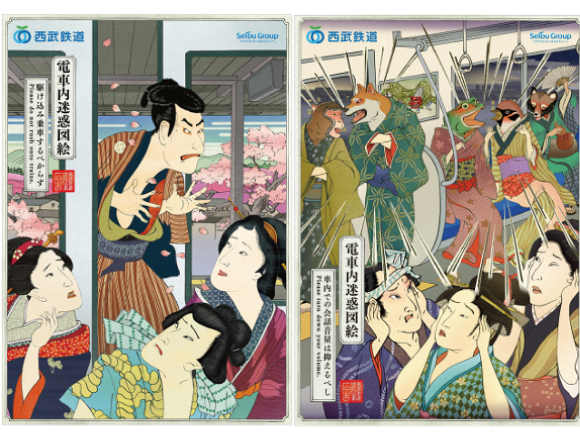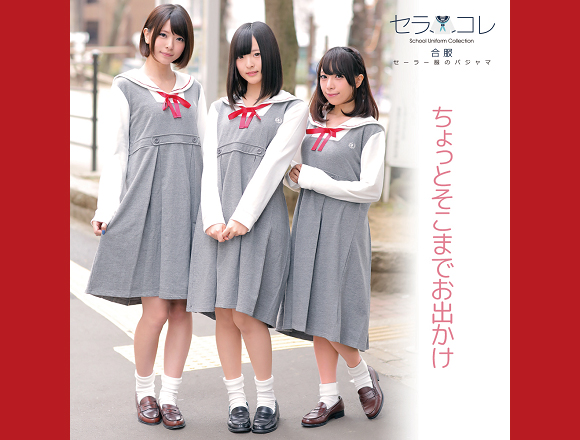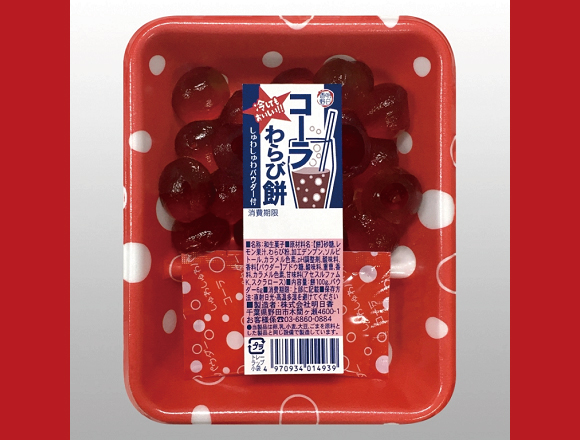Udon chain’s awesome “Tempura Pass” deal works out to less than 10 yen per piece over five weeks
19.March.2017 | FOOD
Prepaid tempura plan is totally the way to go, and even lets you choosefried chicken if that’s what your heart desires.
Spring is the start of both the academic and business year in Japan, which means that from April, a lot of people find themselves with a new commute. Because of that, students and members of the workforce make a trip to the nearest station to buy a new teikiken, or rail pass.
But there’s an entirely different kind of teikiken being offered by udon chain Hanamaru Udon. Instead of taking you to your destination, the Tempura Teikiken helps transport delicious tempura to your stomach.
▼ The Tempura Teikiken

Once a day, holders of the Tempura Teikiken can get a free piece of tempura with their order of udon at any Hanamaru branch. Since prices for Hanamaru’s least expensive option, the basic kake udon, start at just 130 yen (US$1.15), you can get some noodles and tempura for the same cost as a bottle of tea from one of Japan’s ubiquitous vending machines.
RELATED ENTRIES
-
Oh you fancy, huh?
Normally the meal of choice for hard-up college students, salarymen who’ve blown through their weekly food allowance, and late night boozers with poor impulse control, the original high-salt, low-cost instant noodle phenomenon Cup Noodle launched a new line of “luxury” flavors last year to appeal to—presumably—more discerning palates.
We scoffed a bit at the time, but the new flavors proved to be a spectacular hit, selling about 14 million cups to date. Unsurprisingly, the company has decided to expand the series, and this week, they announced the latest flavor: rich abalone and oyster stew.
Available nationwide on April 24, the new flavor boasts the freeze-dried noodles you know and love in a “thick, rich oyster sauce-based soup flavored with abalone soy sauce, topped with abalone-seasoned bok choy, king oyster mushrooms, cloud ear mushrooms and red bell peppers.”
-
Tokyo yakiniku restaurant begins offering halal course meals for Islamic diners
18.April.2017 | FOOD
Japan’s biggest Korean barbecue chain adds two set meals for Muslim meat fans.
Gyu-Kaku is one of Japan’s most popular yakiniku (Korean barbecue) chains, with locations all across the country. However, Gyu-Kaku is also an internationally minded company, having expanded to the U.S., Canada and other parts of Asia as well.
While Gyu-Kaku is yet to reach the Middle East, it is ready to start accommodating Muslim diners at its new branch in Tokyo’s Akasaka neighborhood. When it opens on April 17, the Akasaka Gyu-Kaku will be the first to offer halal course meals, in accordance with Islamic dietary customs.

Appearing on the menu are the 4,500-yen (US$41) Muslim-Friendly Gyukaku Course, and the more upscale 6,500-yen Muslim-Friendly Wagyu Course. Both feature a variety of vegetable and meat dishes, but neither contain nor are prepared with any sort of pork products/extracts or alcohol.

In keeping with halal principles, the cooking and eating utensils involved are used exclusively for the Muslim-friendly course meals, and bear a mark of certification from Islamic Center Japan.
▼ Even the dipping sauce containers and drinking vessels are halal-certified.

▼ The dishes, glasses, and cookware for the halal meal are also hand-washed separately from those used for Gyu-Kaku’s non-halal meals.

We stopped by the restaurant for a pre-opening taste test of the Muslim-Friendly Wagyu Course, which includes beef, chicken, and seafood.

The first order of business was to compare the flavor of Gyu-Kaku’s standard dipping sauce, made with mirin (a sweet cooking rice wine that’s extremely common in Japanese cooking), to the halal sauce which uses sugar instead.
▼ Standard sauce on left, halal sauce on right

We’re extremely familiar with Gyu-Kaku’s sauce, having eating at the chain dozens of times. And yet, we honestly couldn’t tell the difference, as the halal version tastes just like the original.
Next up: kimchi.
▼ Standard on left, halal on right

Again, the two versions’ flavors were remarkably similar. If we had to make a distinction, we’d say the halal version was just a touch spicier, but we only noticed that because we we’re eating them at the same time. Had we just walked into a Japanese yakiniku restaurant and been given Gyu-Kaku’s halal kimchi without knowing about its special status, we would have simply thought we were eating ordinary, extremely tasty kimchi.
-
PABLO’s mouthwatering matcha cheese tart is back again for a limited time
17.April.2017 | FOOD
It’s back and is looking better than ever!
No one does cheesecakes quite like Osaka-based “fresh-baked cheese tart” chain PABLO. Part of what makes their cheesecakes so special is that they are baked to your desired level of firmness. PABLO founder Masamitsu Sakimoto wanted to produce a cheesecake that could be served with different textures, much like a steak, and from there, the original recipe was created and perfected.
Now, what could make a perfect cheesecake even better? The one thing that makes everything better – matcha green tea. PABLO released their matcha cheese tart for a limited time last year, and now it’s back to grace our taste buds yet again.

The matcha cheesecake will be available from this Saturday, April 15 at PABLO locations across the country, for 1,111 yen (US$10.20) per 15-centimeter (six-inch) tart.

The batter is thoroughly infused with just the right amount of aromatic Uji matcha powder, from the Uji area of Kyoto. Inside is plenty of tsubuan red bean paste and shiratama rice flour dumplings. The combination of slightly sweet red beans and rice flour dumplings with the bitterness of matcha gives the tart a uniquely Japanese flavor.
-
Come with us as we take you through the ultimate collection of all the Pringles flavours ever produced in Japan.
If there’s one thing we can’t get enough of in Japan, it’s the amazing array of limited-edition flavours produced by international brands specifically for the Japanese market. From drinks to chocolates and even burgers, some of the special releases you’ll find here aren’t available anywhere else, making them some of the most exclusive and sought-after products in the world.
One of the big international brands to delight our eyes and our tastebuds with their creative designs and flavours is well-known potato chip brand Pringles. After seeing some of their unique offerings on supermarket shelves recently, we decided to get in touch with the company to find out exactly what types of limited-edition flavours they’d produced in Japan over the years. The result is a mammoth collection of colourful tins so beautiful they would look right at home on the walls of a museum.

With only the 2017 collection currently available on the market, gazing over the entire range of Pringles released in Japan was a test of strength as we weren’t allowed to open any of the varieties from earlier collections. Still, that didn’t stop us from fawning over all the unique designs, which was exactly what we did, as we chronicled the entire collection from 2015-2017 for you below!
-
Tokyo IT firm is looking for “Beer Interns” who’re willing to drink while on the job
09.April.2017 | Uncategorized
No need to wait until the workday is done before knocking back a cold one, and it just might lead to a full-time position.
Internships can be an invaluable way to kick-start your progress along your desired career path. While many of them may not be long-term enough for participants to significantly boost their technical skill levels, there’s nothing quite like the confidence and dependability you can gain through the experiences of having actually worked alongside professionals in your field of interest.
Doing an internship can also help you accept which bad habits from your student days you’ll have to grow out of, such as procrastinating, showing up late, or giving in to your temptation to enjoy a refreshing beer before you’ve completed your assigned tasks.
Actually, wait. You can hold onto that last one as long as your internship is with Japanese web developer Technomobile. The company, whose offices are located in downtown Tokyo’s Minami Aoyama neighborhood, is now accepting applicants for its Beer Intern position.

Don’t worry, Technomobile isn’t planning to make interns spend all day running back and forth to the convenience store to pick up chilled cans of Yebisu Beer for the regular employees. This is a legitimate internship in which you’ll be using the Ruby on Rails application framework to complete web development assignments. You’ll just be doing it with a beer in one hand, as the program aims to “help clear away tension by having a beer, and let interns experience the working atmosphere at Technomobile and see if they’re compatible with it.”
-
Marvel Age of Heroes Exhibition opens in Tokyo, and we stop by to experience the heroic display
09.April.2017 | SPOT
Giant statues, themed food, and exclusive merchandise are all part of the event at Roppongi Hills.
The Mori Tower, which stretches to the skies above Tokyo’s Roppongi Hills entertainment complex, periodically hosts art exhibits in its 52nd-floor observation area. In the past, we’ve stopped by for such events saluting such Japanese pop cultural phenomena as the anime of Studio Ghibli, Sailor Moon, and Puella Magi Madoka Magika.
The source material for the celebration going on at Mori Tower right now, though, comes from across the Pacific. On April 7 the Marvel Age of Heroes Exhibition began, filling the event space with more than 200 pieces of memorabilia from the American publisher’s comic books and movies.

We took the elevator up to check the exhibition out for ourselves. Greeting guests at the entrance is a gigantic, five-meter (16.4-foot) statue of Iron Man, which caused just about everyone in the crowd to whip out their phone or camera and snap a picture.
▼ Given Tony Stark’s love of the limelight, we think he’d be pleased with all the attention.

The exhibit leads you through five different areas, beginning with History before passing through Heroes, Cinematic Universe, and Art before finishing in Culture. Each features a variety of artwork and props, from costumes to original comic artwork.
-
Semi-secret Shinjuku sushi lunch is a great way to get your fish fix for cheap in central Tokyo
05.April.2017 | FOOD
Delicious maguro tuna and all-you-can-drink coffee for less than most fast food set meals.
Sushi is one of those things we love so much that we always wish we had more of it in our lives. However, money is another thing that fits that description, which puts us in sort of a bind, since we usually have to exchange some of the money we have for goods, such as sushi.
So we were happy to discover an awesome lunch deal offered right in the heart of Tokyo. While strolling the Shinjuku neighborhood on our lunch break, we noticed that the local branch of popular sushi chain Sushi Zanmai has a sign outside touting their weekday lunch specials, which are offered from 11 a.m. to 5 p.m.

Stepping inside, we asked for a table and started looking over the menu, where we found an incredible deal: a magurotzuke rice bowl for just 515 yen (US$4.65)!

If you haven’t had the pleasure of eating magurotzuke before, the word refers to slices of tuna (maguro) sashimi seasoned with a slightly sweet and salty soy-based sauce. Sushi Zanmai ups the deliciousness quotient by adding shiso, or Japanese basil leaf, and sesame seeds, plus a pinch of pickled ginger.

Sushi Zanmai has a sold reputation of offering tasty food at a reasonable price, but even then, we weren’t expecting much from a bowl of sushi that costs less than many of the set meals offered at a fast food burger joint. But our fears were misplaced, as we took a bite and discovered that the maguro had just the right balance between fat and lean fish, making it flavorful yet refreshing.
-
One Piece official lingerie and bikinis: further proof that the pirate anime is for grown-ups too
04.April.2017 | FASHION
Japanese intimate apparel company that brought us Sailor Moon panties turns its eyes to another icon of the anime world.
Though it’s serialized in Weekly Shonen Jump, a manga anthology aimed primarily at pre-college-age males, pirate saga One Piece has been running for 20 years now, making it old enough to indulge in some sexy side–projects. The anime/manga franchise also has plenty of female fans, which brings us to its latest collaborative venture.
Intimate apparel company Peach John has just announced its first-ever tie up with One Piece, with the first batch of related merchandise set to go on sale later this month. Four of the series most popular female characters will be represented in a collection of bathing suits and lingerie, starting with the Nami swimwear set, which consists of a bikini top, bottom, and pair of shorts for 8,980 yen (US$81).

Slightly pricier is the 9,980-yen Robin swimwear set, which comes with a top that provides a little more coverage than Nami’s, and also replaces the short shorts with a more modest wrap.
-
Japanese rail company uses ukiyo-e posters to ask commuters to mind their manners on the train
01.April.2017 | SPOT
The ever-growing series of traditional artworks is grabbing everyone’s attention for its beauty and humour.
One of the many things we love about Japan is the way that art blends into everyday public life. Whether it’s custom-wrapped trains, plastic food replicas, or Hello Kitty-adorned construction sites, everywhere you look there are eye-catching images that inadvertently grab our attention.
One place that’s particularly well-known for its arty posters and banners is the Japanese rail system. Here, we’ve seen “manner posters” that ask commuters to refrain from things like eating and manspreading, but now there’s a brand new type of manner poster on the rail network that’s got everyone talking.
Inspired by traditional ukiyo-e woodblock prints, the new series from Seibu Railways is called “Denshanai Meiwaku-zue“ (電車内迷惑図絵), a title in line with traditional ukiyo-e naming conventions, which translates to “Picture of Annoyances Inside the Train”.
▼ The first poster in the collection is “Please let others sit comfortably“.

The second print in the series, called “Please turn down your volume“, features groups of chattering animals, harking back to the style of Kawanabe Kyōsai (1831–1889), an acclaimed caricaturist known for his images of demons and animals.
-
Crazy Kyoto train will have a giant lens motif taking up its entire front end
01.April.2017 | SPOT
Set to go into service next year carrying passengers from downtown Kyoto to Buddhist mountain temples.
When people in Japan hop on a crowded commuter train to go to or from work, it’s not exactly a glamorous experience (though it is something that everyone should experience at least once in their life). But outside of such workaday train trips, riding the rails in Japan can still have a definite dynamically adventurous appeal, especially if you happen to be aboard one of the country’s trains with a highly-developed sense of style.
In the past, we’ve looked at trains with interiors boasting gorgeous hotel rooms, lovely lacquer, traditional foot baths, and even art galleries. But a newly unveiled design from Kyoto-based Eizan Railway is putting the focus on the outside, with what appears to be a giant lens on the front of the lead car.
Eizan Railway operates a pair of lines which both start at Demachi Yanagi Station, in the northeast corner of downtown Kyoto, before later splitting at Takaragaike Station. From there, one line continues on to Yase Hiezanguchi, and the other to Kurama, the stations located at the bases of the mountains Hiezan and Kuramayama, respectively. Both mountains are known for their important Buddhist temples.
-
New “rich girl” schoolgirl roomwear arrives to celebrate the start of the academic year in Japan
30.March.2017 | FASHION
The Ojo-sama is the newest addition to the growing field of schoolgirl-style pajamas.
In Japan, it’s customary for students to have two different uniforms that they wear during the school year. One is for the colder weather of autumn and winter, and the other is for spring and summer, when the longer hours of sunlight and higher humidity necessitate lighter, breezier clothing.
So it’s only fitting that Bibi Lab, makers of the Sera Kore (“Sailor Collection”) line of sailor suit roomwear/pajamas, has just released a new model. Previously, the brand’s designers have shown their thorough knowledge of schoolgirl style with variations that represent different historical periods of Japanese sailor suit fashion, and this time Bibi Lab has decided to focus on a specific type of school with the all-new Ojo-sama-kei, or “Highborn Young Lady” Sera Kore outfit.

The one-piece Ojo-sama Sera Kore gets its name from the jumper skirt design. Teens being teens, many Japanese high schoolers try to get around their schools’ dress codes by rolling up or sagging their so that they differ from the standard length, wearing non-regulation dress shirts, or a number of other subtle forms of expression and/or rebellion. A jumper skirt, though, being a one-piece design, presents fewer opportunities to, well, skirt the rules, and as such it’s mentally associated with the sort of old-fashioned, traditional schools that blue-blooded moms and dads choose to send their daughters to.
-
Cola-flavored mochi sweets are half Japanese tradition, half jiggly Pop Rock
30.March.2017 | FOOD
Warabi mochi is usually flavored with soybean powder, but not in the case of these treats from Osaka.
It’s hard to find a dessert that feels more Japanese than warabi mochi. Linguistically tied to mochi (Japanese rice cakes), warabi mochi is actually made from fern starch, with the resulting gelatin cut into cubes and typically dusted with kinako, a roasted soybean powder that tastes a little like cinnamon.
▼ Warabi mochi

But while tradition is all well and good, Osaka-based confectioner Asuka Foods also thinks that desserts are supposed to be fun, and so it’s not interested in being bound by orthodox warabi mochi dogma. In the summer of 2016, Asuka released a special warabi mochi flavored like ramune, a refreshing cider that’s popular in Japan. Now, the company is getting ready to start selling a brand-new soft drink-inspired snack: cola warabi mochi.
Warabi mochi is often clear, but Asuka’s cola version is a dark reddish brown meant to be evocative of Coca-Cola or Pepsi (or Mets Cola, if you’re someone who maintains absolute brand loyalty to the Kirin Beverage product lineup). Attached to the package is a packet of flavoring powder, which Asuka says will cause a bubbly carbonation-like sensation in the mouth.

